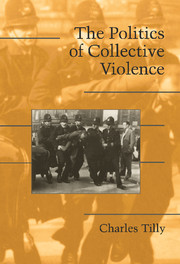9 - BROKEN NEGOTIATIONS
Published online by Cambridge University Press: 05 June 2014
Summary
Indian Police versus Villagers
Rice- and sugar-growing Narayanpur village lies in the northeastern reaches of India's Uttar Pradesh, near the border with Nepal. In the region, members of elite castes generally support the Congress Party and sometimes carry their clients with them. But the bulk of the peasant population tends to favor left and agrarian opposition parties. A large divide opens up between rich and poor. On either side of the divide, party politicians provide important links between national centers of power and local politics, including violent politics. Police forces usually line up with the same party politicians for protection and promotion. A road accident in 1980 activated just such alignments in village violence.
On 11 January, a bus operated by a private company ran down and killed a Narayanpur grandmother. The victim had supported two grandchildren by herself. Local people surrounded the offending bus, demanding that the company offer compensation to the family members who would now have to bring up the children. The driver escaped by promising that the bus operator would pay up. Later that day, people in the village stopped a second bus from the same company. The bus's sequestration brought the owner onto the scene; he offered a small amount of money as compensation, only to face rejection from the crowd. (Some observers reported a remark from the owner that if he had to pay full compensation every time one of his buses killed someone, he would go bankrupt.)
- Type
- Chapter
- Information
- The Politics of Collective Violence , pp. 194 - 220Publisher: Cambridge University PressPrint publication year: 2003



